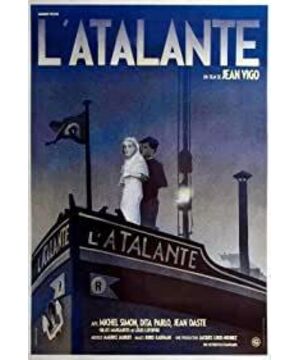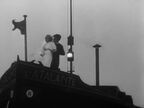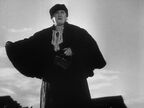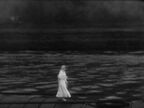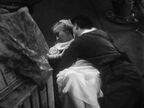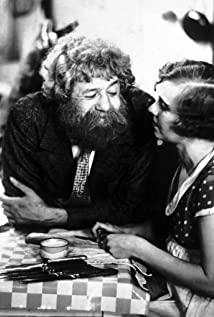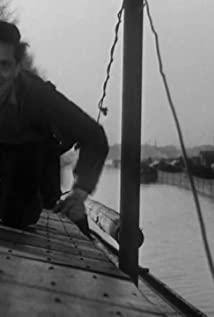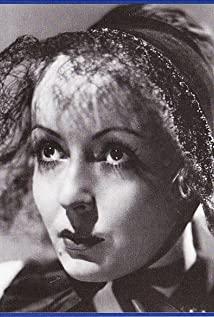This is the last film made by Jean Vigo during his lifetime. Soon after the film was released, the talented "avant-garde" director unfortunately passed away prematurely. Jean Vigo made only four films in his short life. Except for "Swimming Champion Datans" (1931), the first three films, "Talking Nice" (1930) and "Performance Zero" (1933) have a strong sense of criticism and even obvious subversive tendencies. Although the political meaning of "Barge Atalante" seems to be vague, we cannot think of it as a retrogression of Jean Vigo's thinking. On the contrary, this film marks the maturity of his thinking. "Talking Nice" is a child with pure emotions observing social corruption from outside the society; "Zero Conduct" is a child who is confined in a society reveals its absurdity from the inside of the society, and fantasizes to subvert that society; "Atalam" "Special Barge" constructs a concrete world that is deliberately opposed to society. However, the facts have proved that this possibility is suspicious. After all, the barge is not an isolated world. Since we can't get a better world, people have to live with that society for the time being. In this respect, "Barge Atalante" can be said to be Jean Vigo's helpless sigh before his death. He is no longer a cynical child, but an adult who learns to think. Unfortunately, his life is too short, we could have expected him to make more contributions to film art.
The ban of "Zero Conduct" caused an unexpected sensation in society for Jean Vigo. This in turn prompted the producers to be willing to provide him with more funds: they estimated that as long as he no longer shoots subversive themes, it may cause another sensation with box office value. However, the script of "Barge Atalante" that Jean Vigo has in hand is very bad, just an old love story. Jean Vigod tried to make the characters in this old story have distinctive personalities, so that the story became only an excuse for character-building. When Jean Vigo rewritten the script for the film, his energy was mainly on character shaping. Fortunately, for the first time in his life, he has sufficient filming costs to hire famous actors to play roles in the film. Daddy Jule is a key role in the film, and Jean Vigo hired Michelle Simon, a performance artist who is famous for starring in Renoir's film "The Prostitute", to play it. The role of Juliet has a process of character development. She was first a naive and vain country girl, and later became a young woman who has experienced many vicissitudes of life. The emotions and characters have ups and downs, which is not what ordinary inexperienced actors can do. Jean Vigo hired the famous international movie star Dita Pallo to play this role. Captain Jean is played by Jean Dasday, who played Mr. Yu Gai in "Non Conduct"; the apprentice sailor is played by Louis Lefebvre, who plays the lead role of the troublemaker Guo Sa in "Non Conduct" . Facts have proved that they are all qualified for their respective roles. Especially Michelle Simon, when he played Daddy Juul, he had a life prototype in his mind, that is, his old friend Daddy Isaac. The man has rich experience and is unique, and his speech and behavior have become the realistic basis for Michelle Simon to design actions for Daddy Jule. Renoir highly praised Michele Simon’s acting skills. He said: "The appearance of Michelle Simon has given us a reliable guarantee for making outstanding films."
In addition to working hard on the characterization of the characters, Jean Vigo also strives for perfection on the screen. This is of course mainly due to the outstanding photographer Boris Kaufman. Boris Kaufman was originally from Russia, the younger brother of Soviet filmmaker Vertov. In the 1930s, he lived in France and became an active participant in the later period of the French "avant-garde" film movement. Each of Jean Vigo’s films is photographed by him. Later, Boris Kaufman lived in the United States and became the photographer of the famous American director Kazan. In Hollywood, Kaufman still remembers the good relationship with Jean Vigo. He called those days the "lost paradise"; he said that Jean Vigo is good at using everything around him, and he is good at using the sun, moonlight, snowflakes and night; Regarding the unfavorable natural conditions, Jean Vigo did not try to overcome it, but tried to make use of it. It is precisely because of Jean Vigo's poetic temperament that he is extremely sensitive to nature, he can discover ways to create beauty from various natural conditions. In the process of filming "The Barge of Atalante", Jean Vigo's poetic temperament made him improvise to capture many beautiful pictures from the natural scenery. Jean Vigo once recalled: We filmed the location in the river network area of Paris. "The beautiful scenery intoxicated us. We set the plot in the background of river locks, steep river banks, wilderness and small hotels." Jean Vigo’s assistant Riera added the following comment to this memory: “Jean Vigo’s turbulent imagination allowed him to improvise handily. It was not the dialogue in the script that inspired him, but It's the face of the person, the surrounding things and the scenery." The film "Barge Atalante" is just such a masterpiece of video art.
The film is full of beautiful and poetic pictures. At the beginning of the film, the newlyweds walked out of the church and walked arm in arm through the streets of the town, across the fields, to the pier where the barge was docked. The two of them were silent, like in a dream. The scene where Daddy Jule showed his souvenirs to Juliet was also amazing, making the audience encounter unexpected images like reading a modernist poem. When the lens was pushed to a porcelain jar, we saw that it contained a pair of hands that were cut from the human body! Father Jule explained that this was a relic left by an old friend of his. Such a surprising detail can inspire audiences to have many associations with the character of Daddy Jule. The scene where the captain dives into the water to find his wife's shadow is a surrealist video boutique, an imaginary world portrayed by light and shadow. When realism is not enough to express Jean Vigo's inner imagination, he uses this kind of dreamlike surreal technique to convey the unspeakable feelings of living characters to the audience.
In this way, Jean Vigo made a mediocre drama into a film full of poetry, reverberating passion, and philosophy of life. Each picture is loaded with a lot of information about the society and the people in this society. It is a pity that since such a film came out, the fate has been quite sad. On April 25, 1934, the film was screened in-house for cinema owners, distributors and representatives of film companies. Although the critics gave a wave of praise, the distributors and exhibitors thought it had no commercial value. In order to ensure the box office revenue, Gaomeng, which released the film, added a popular song "Barge Passing" into the film, destroying the integrity of the original music of the film (the film’s music was created by the famous composer Jobel The creation is very appropriate to the style of the film), and even changed the title of the film to "The Barge Passing By", savagely deleting many pictures that were considered redundant. The publisher's stupid corrections not only failed to increase box office revenue, but also drew dissatisfaction from the audience. Jean Vigo died of illness on October 5 of that year in the tragic situation of the film being censored and the box office completely failed. Five years later, on October 30, 1940, the film was finally released again under the original title. Jobel's music and some deleted scenes were also restored, but there was still a big gap from the original film. It was not until 1950 that film material experts and film historians re-edited a new version based on the original material that was said to be quite close to the original.
Aesthetic historian Airy Four said after watching the film "The Barge of Atalante": "This film condenses the essence of all Jean Vigor's works. It is the strongest, most painful, and most passionate film. , In which is boiling with thoughts and turbulent imagination, boiling with fierce, even frenzied romantic sentiment, and at the same time full of human touch.” Indeed, it proves that Jean Vigo has a rare talent that can learn from ordinary people’s daily lives. A veritable poetry is extracted from life, and a poem that shakes the soul is created.
In order to commemorate the genius who died young, France established an annual award named after Jean Vigo in 1952, specifically rewarding outstanding film newcomers with originality. French contemporary film masters Godard and Chabrol got the Jean Vigo Award as the starting point for their brilliant film career.
View more about L'Atalante reviews


